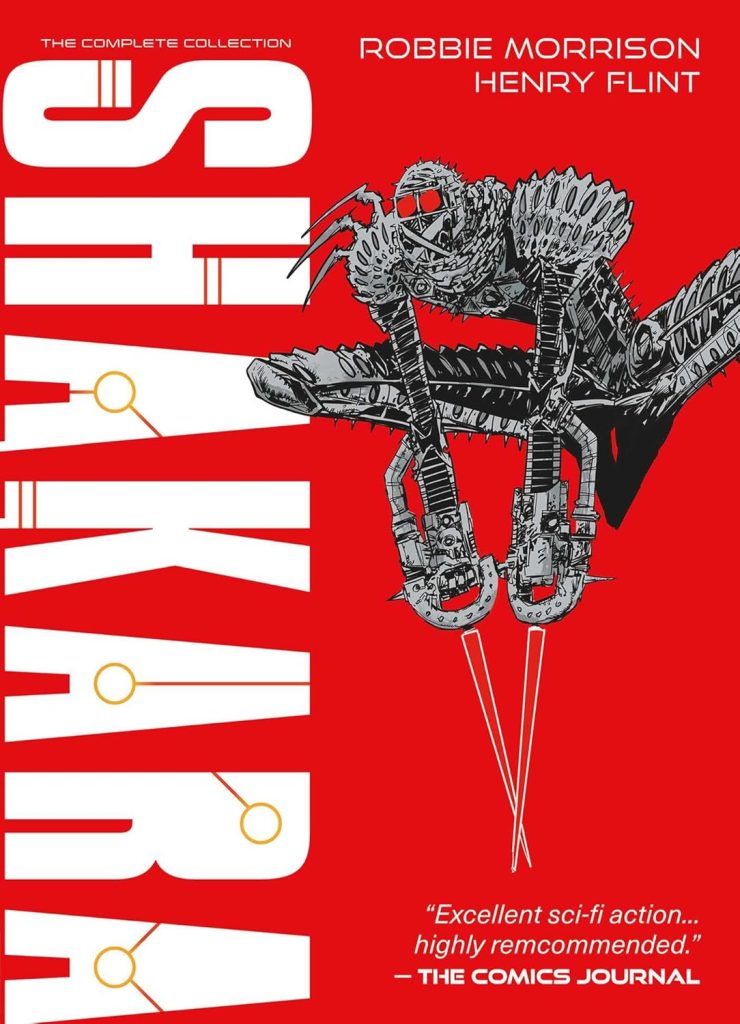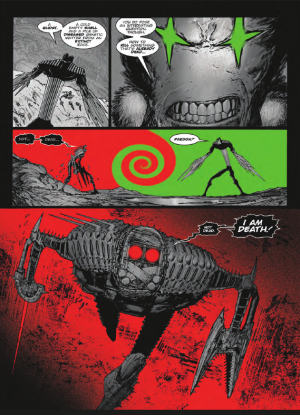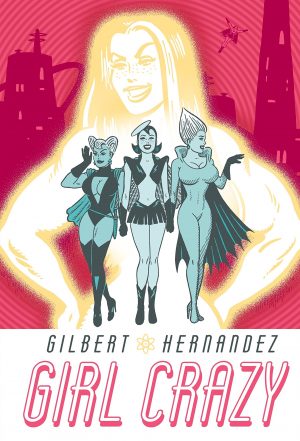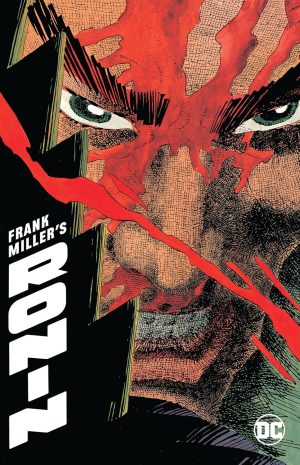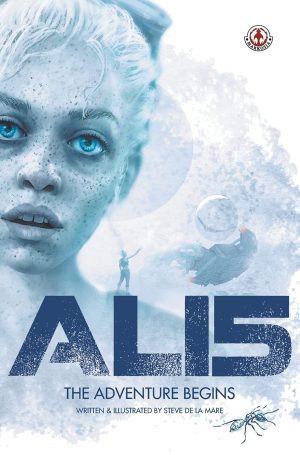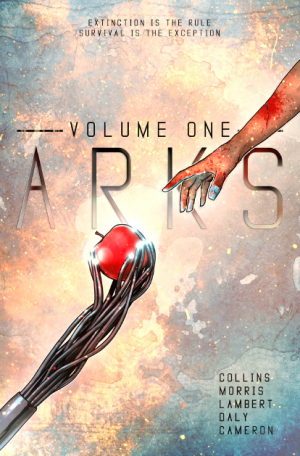Review by Karl Verhoven
Shakara first appeared in 2000AD in 2008. It’s original, memorable, and astonishingly well drawn, and yet it seems to have gradually faded from the public consciousness instead of lodging there. Even longer lists of 2000AD’s best neglect Shakara, which is mystifying. Perhaps this reissue will prompt a re-appraisal.
This collection is indeed complete as far as story content is concerned, but the introductions writer Robbie Morrison provided for individual paperbacks The Avenger and The Destroyer are absent, which is a shame as they informed and contextualised. The starting point seems to have been an alternate take on Nemesis the Warlock, with Shakara in his distinctive craft, but what develops rapidly moves away into a vast cosmic soup featuring the personification of revenge as an indestructible robot guided by the minds of an extinct race.
Shakara’s first page features the destruction of Earth, and the final human is eradicated without ceremony two pages later. It’s a statement of several intentions, the most important of which is this being a story with humanity entirely absent. Instead for some while we follow an almost silent agent of destruction remorselessly going about a purpose only making sense to him.
Well, perhaps also to Henry Flint for whom this surely rates as a career highlight. It’s page after page of artistic splendour in insanely detailed greytoned art with exceptional thought given to the sparing use of colour. It’s conceptual magnificence that Jack Kirby would admire, not least for the character designs. Shakara’s jagged presence is frightful enough, but it’s matched by the appearance of other characters, most prominently the far sleeker design of Cinnebar Brenneka, Shakara’s ultimate foe.
This is big battles for big stakes, with absolutely no certainty as to what the next chapter will bring, and the imagination and ambition are to be lauded. However, it would be deceitful not to mention a few teething problems. For a long while Morrison compensates for a lead character that doesn’t speak by overwriting those who do and filling the captions with descriptive waffle. However, once he find his voices Morrison switches them adeptly, even dropping the occasional funny indulgence. “I didn’t get where I am today without shooting first and asking questions later” declares one thug seconds before his decapitation.
Some readers may not like the idea of chapter after chapter with no over-riding purpose, but the journey has a resolution, and even when a mission becomes clearer and clearer there’s still no predicting anything. Shakara is flawed, but it’s also great, and anyone interested in something different should dive right in.
